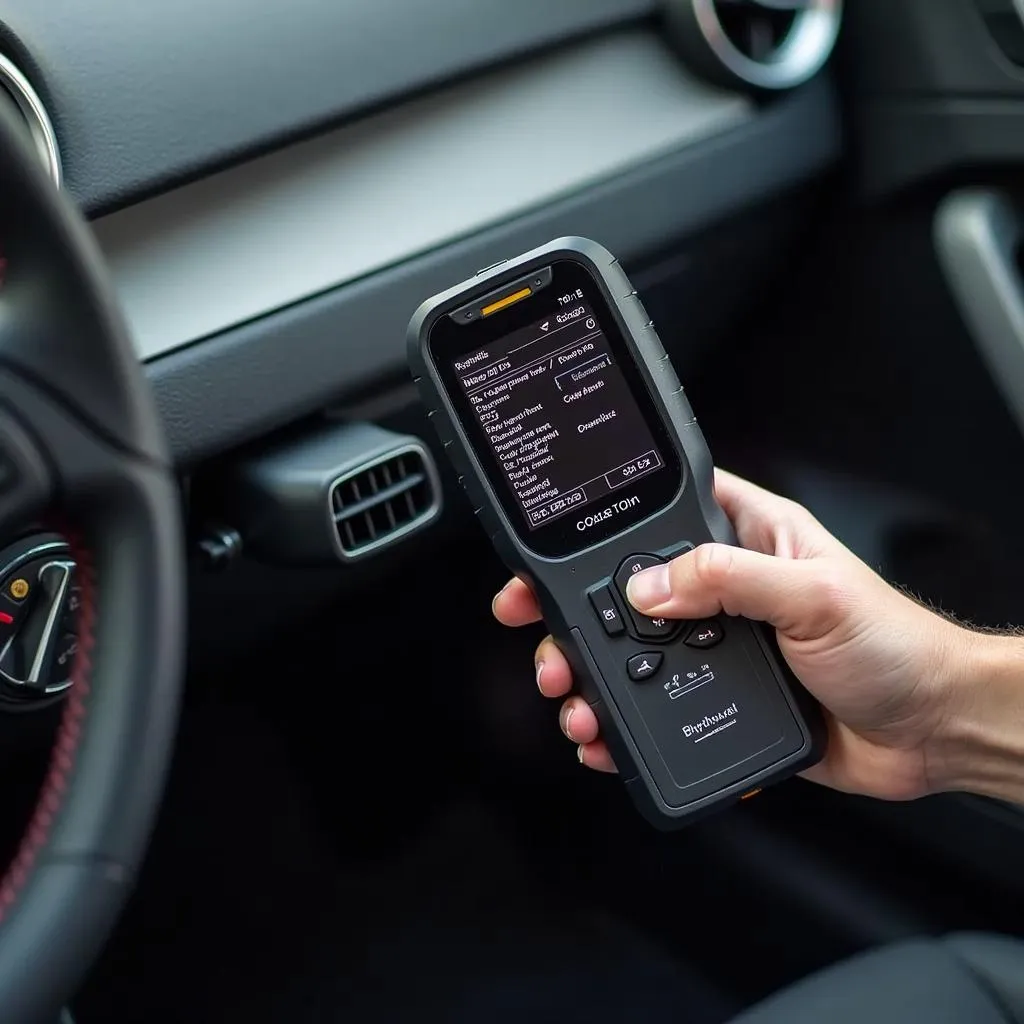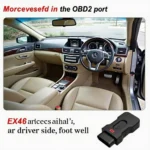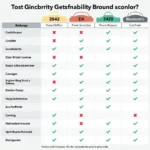Finding the best OBD2 tools can feel like navigating a maze of technical jargon and conflicting information. Whether you’re a seasoned mechanic or a car enthusiast looking to demystify those blinking dashboard lights, choosing the right OBD2 scanner can be a game-changer. These handy devices empower you with the knowledge to understand your car’s health, diagnose problems, and potentially save on costly repairs.
This comprehensive guide will walk you through everything you need to know about the best OBD2 tools on the market, helping you make an informed decision based on your needs and budget.
Understanding OBD2 Scanners: A Powerful Tool for Every Car Owner
Before we dive into the specifics of the best OBD2 tools, let’s clarify what these devices are and why they’re essential for any car owner. OBD2 stands for On-Board Diagnostics, generation two. It’s a standardized system implemented in most vehicles manufactured after 1996 in the United States (and many other countries) that allows external electronics to interface with a car’s computer system.
Think of an OBD2 scanner as a translator between you and your car. By plugging into the OBD2 port, typically located under the dashboard on the driver’s side, these tools can:
- Read and clear diagnostic trouble codes (DTCs): These codes are like your car’s way of saying, “Hey, something’s not quite right.” An OBD2 scanner can pinpoint the source of the problem, from a loose gas cap to a malfunctioning sensor.
- Display real-time engine data: Get insights into your car’s performance by monitoring parameters like speed, RPM, coolant temperature, and more.
- Access manufacturer-specific data: Some advanced scanners delve deeper, providing information specific to your car’s make and model.
Types of OBD2 Scanners: Choosing the Right Tool for the Job
OBD2 scanners come in various shapes and sizes, each catering to different needs and budgets. Here’s a breakdown of the most common types:
1. Basic Code Readers: Affordable and User-Friendly
As the name suggests, basic code readers are designed to read and clear basic DTCs. They’re an excellent option for car owners who want a simple tool to understand and address basic engine-related issues.
Pros:
- Budget-friendly
- Easy to use, even for beginners
- Compact and portable
Cons:
- Limited functionality, typically only reading and clearing basic codes
- May not provide detailed information about the problem
2. Bluetooth and Wi-Fi OBD2 Scanners: Wireless Convenience at Your Fingertips
Bluetooth and Wi-Fi scanners bring a new level of convenience by connecting to your smartphone or tablet. Download a companion app, and you can turn your mobile device into a powerful diagnostic tool.
Pros:
- Wireless connectivity for added convenience
- Access to a wider range of apps and features
- Often more affordable than dedicated scan tools
Cons:
- App quality can vary, some offering limited features or requiring subscriptions
- Relies on your smartphone or tablet’s battery life
3. Professional-Grade Scan Tools: The Mechanic’s Choice
For serious DIYers and professional mechanics, professional-grade scan tools offer the most comprehensive diagnostics and features. These tools can access manufacturer-specific codes, perform advanced functions like bi-directional control (sending commands to the car’s systems), and even program keys.
Pros:
- Unmatched diagnostic capabilities
- Access to manufacturer-specific data and functions
- Often include advanced features like live data graphing and logging
Cons:
- Significantly more expensive than other types of scanners
- May require technical expertise to fully utilize all features
Key Features to Consider When Choosing the Best OBD2 Tools
With a basic understanding of the types of OBD2 scanners available, let’s explore the essential features to consider when making your decision:
- Vehicle Compatibility: Ensure the scanner you choose is compatible with your car’s make, model, and year. Most scanners support a wide range of vehicles, but it’s always best to double-check.
- Code Reading and Clearing: All OBD2 scanners should be able to read and clear basic DTCs. Consider whether you need access to manufacturer-specific codes.
- Live Data Streaming: This feature allows you to monitor real-time engine parameters, providing valuable insights into your car’s performance.
- Data Logging: If you want to track data over time or share it with a mechanic, look for a scanner with data logging capabilities.
- Additional Features: Some scanners offer extra features like smog test readiness checks, battery voltage monitoring, and even GPS tracking.
Top OBD2 Scanner Recommendations: From Budget-Friendly to Professional-Grade
Navigating the vast world of OBD2 scanners can be overwhelming. To simplify your search, here are some recommendations based on different needs and budgets:
Budget-Friendly Options:
- Goliton OBD2 Bluetooth: A great value for money, this compact Bluetooth scanner connects to your smartphone and provides basic code reading and clearing functionality.
Mid-Range Choices:
- Vgate OBD2 WiFi Android: This Wi-Fi-enabled scanner offers wider compatibility with both Android and iOS devices and comes with a user-friendly app for enhanced diagnostics.
Professional-Grade Picks:
- Diagnostic Scan Tool with Timing Adjust for OBD2 Chevy Truck: This specialized scanner is tailored for Chevy truck owners, offering in-depth diagnostics and the ability to adjust timing settings.
Beyond the Basics: Common OBD2 Questions Answered
Q: Can I use an OBD2 scanner on any car?
A: While OBD2 is a standardized system, there are some exceptions. Most gasoline-powered cars and light trucks sold in the United States after 1996 are OBD2 compliant. However, some older vehicles and those with diesel engines may use different systems.
Q: What do I do after I get a code reading?
A: An OBD2 scanner is just the first step. Once you have a code, research its meaning online or consult a repair manual. Remember, codes don’t always pinpoint the exact problem but rather guide you in the right direction.
Q: Can I fix my car myself using an OBD2 scanner?
A: While OBD2 scanners can help you diagnose problems, they don’t perform repairs. Some issues may be simple fixes, like tightening a loose gas cap, while others require professional attention.
Empowering Car Owners with Knowledge and Control
The best OBD2 tools put the power of diagnostics in your hands. By understanding your car’s health, you can address issues proactively, potentially save on costly repairs, and enjoy peace of mind on the road. Whether you choose a budget-friendly code reader or a professional-grade scan tool, an OBD2 scanner is a valuable investment for any car owner.
Remember, knowledge is power. Arm yourself with the right tools and information to take control of your car’s maintenance and ensure a smoother, more enjoyable driving experience.
For a wider selection of OBD2 scanners and resources, visit Amazon OBD2 Code Readers or explore options at your local auto parts store like OBD2 Scanner at AutoZone. If you need personalized assistance in choosing the right scanner for your needs, our team of experts is here to help. Contact us via WhatsApp at +1(641)206-8880 or email us at cardiagtechworkshop@gmail.com. We’re available 24/7 to answer your questions and guide you towards the best solution.


